Nigeria, officially named the Federal Republic of Nigeria, is a federal constitutional republic comprising thirty-six states and one Federal Capital Territory. The country is located in West Africa and shares land borders with the Republic of Benin in the west, Chad and Cameroon in the east, and Niger in the north. Its coast lies on the Gulf of Guinea, part of the Atlantic Ocean, in the south. The capital city is Abuja.

The people of Nigeria have an extensive history, and archaeological evidence shows that human habitation of the area dates back to at least 9000 BC.[1] The Benue-Cross River area is thought to be the original homeland of the Bantu migrants who spread across most of central and southern Africa in waves between the 1st millennium BC and the 2nd millennium AD.
Nigeria is the most populous country in Africa and the eighth most populous country in the world with a population of over 140 million. The country is listed among the "Next Eleven" economies, and is one of the fastest growing in the world with the International Monetary Fund projecting growth of 9% in 2008 and 8.3% in 2009.
Key Economic Indicators:
Economic Outlook:
Nigeria has made progress toward establishing a market-based economy. It has privatized Nigeria Telecommunications and its mobile subsidiary as well as the only government-owned petrochemical company. The government also sold its interest in eight oil service companies. Nigeria continued implementation of the Economic Community of West African States (ECOWAS) Common External Tariff. Nigeria's implementation of non-tariff barriers has been arbitrary and uneven and continues to violate WTO prohibitions against trade bans. The government has recently created an intellectual property commission.
A co-member of the International Advisory Group of the Extractive Industries Transparency Initiative (EITI) initiated by the G8, Nigeria's federal government is playing an important role in having volunteered to pilot the new disclosure and validation methodologies. It has completed a comprehensive audit of oil sector payments and government revenues from 1999-2004.
Nigeria's economic team has enjoyed an excellent reputation in the international community. The team produced an encouraging body of work, notably budgets described as "prudent and responsible" by the IMF and a detailed economic reform blueprint, the National Economic Empowerment and Development Strategy (NEEDS). Other positive developments have included: (1) government efforts to deregulate fuel prices; (2) Nigeria's participation in the EITI and commitment to the G8 Anticorruption/Transparency Initiative; (3) creation of an effective Economic and Financial Crimes Commission (EFCC), which has earned 150 convictions and recovered over $5 billion in mishandled funds; and (4) development of several governmental offices to better monitor official revenues and expenditures.
Investment
Nigeria possesses many positive attributes for carefully targeted investment and will expand as both a regional and international market player. Profitable niche markets outside the energy sector, such as specialized telecommunication providers, have developed under the government's reform program. There is a growing Nigerian consensus that foreign investment is essential to realizing Nigeria's vast potential. Companies interested in long-term investment and joint ventures, especially those that use locally available raw materials, will find opportunities in the large national market. The Nigerian Government is keenly aware that sustaining democratic principles, enhancing security for life and property, and rebuilding and maintaining infrastructure are necessary for the country to attract foreign investment.
U.S. Nigeria Relations
"Investing in People" is the top U.S. foreign assistance priority in Nigeria. The U.S. ability to help Nigeria combat public health shortcomings contributes directly to good governance, societal stability, economic growth, and confidence in U.S. concern for the well-being of the Nigerian people.
The United States is helping Nigeria make exceptional efforts to develop inclusive, transparent, and effective institutions of democratic governance. U.S. assistance helps rebuild basic mechanisms of democratic governance to make elected officials accountable to constituents through free and fair elections, strong government institutions, and well-organized, informed citizens who demand performance. The U.S. advances rule of law in Nigeria by strengthening the capacity and transparency of law enforcement agencies and judiciary. The United States supports democratic local government and decentralization and improves fiscal administration by maximizing revenue collection in credible audits. It strengthens civil society by promoting existing watchdog groups that have lobbied successfully for more transparency, accountability, and pluralism in Nigeria's fiscal, electoral, conflict management, political, and human rights affairs.
Economic Growth: The United States is working with the Central Bank of Nigeria, Finance Ministry, National Planning Commission, and others to improve the environment for investment in agriculture through policy reform at the national and state level. Federal and state policy strengthening are essential as business decisions and banking regulation take place at both levels. U.S. programs help develop a policy climate in which micro, small and medium enterprises have access to credit, encourage investment, stimulate job growth, and build capacity in both the public and private sectors. Trade initiatives include capacity building in customs regulation and operations, policy reform to encourage internal and external trade, taking advantage of African Growth and Opportunity Act (AGOA) incentives for bilateral trade, and development of the private sector capacity to meet international trade and export standards.
Ongoing presidential initiatives with Nigeria include the African Growth and Competitiveness Initiative, fighting avian flu, the Initiative to End Hunger in Africa, and the Trans-Sahel Counter-Terrorism Program. Nigeria's eligibility for other regional activities include the Famine Early Warning System, Anti-Corruption Initiative; trafficking in persons; and the Ambassador's Girls Scholarship Fund. Nigeria is a premier participant in the President's Emergency Plan for AIDS Relief (PEPFAR), for which $270 million was committed in FY 2007.
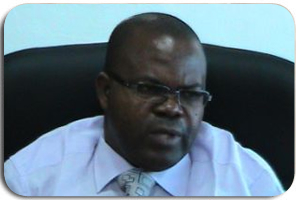 Mr. Kennedy IzuagbeManaging DirectorCARLISLE PROPERTIES & INVESTMENT LIMITED Mr. Kennedy IzuagbeManaging DirectorCARLISLE PROPERTIES & INVESTMENT LIMITED | 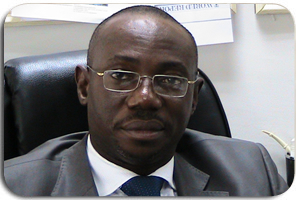 Arch. Kester IfeadiCEOCONTEMPORARY GROUP Arch. Kester IfeadiCEOCONTEMPORARY GROUP | 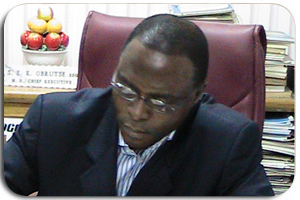 Mr. S.E.K.ObrutseExecutive ChairmanIMONIYAME HOLDINGS LIMITED Mr. S.E.K.ObrutseExecutive ChairmanIMONIYAME HOLDINGS LIMITED | 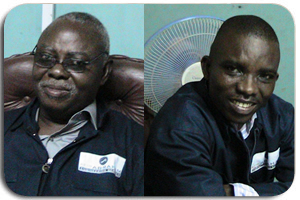 Engr. Aduwo and Engr. Tokunbo AdetuwoMD/CEO AND GMAKINABRAHAM ENGINEERING SERVICES LTD Engr. Aduwo and Engr. Tokunbo AdetuwoMD/CEO AND GMAKINABRAHAM ENGINEERING SERVICES LTD |
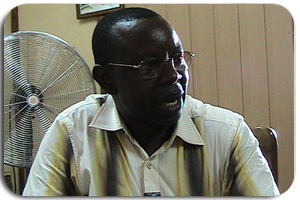 Mr. Alozie S. AlozieMDMCASA CEILINGS LIMITED Mr. Alozie S. AlozieMDMCASA CEILINGS LIMITED | 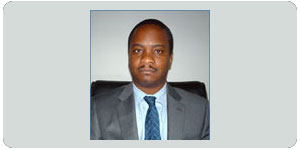 Dr. Dapo MajekodunmiM.B., B.S., M.R.C.O.G.SAINT NICHOLAS HOSPITAL Dr. Dapo MajekodunmiM.B., B.S., M.R.C.O.G.SAINT NICHOLAS HOSPITAL | 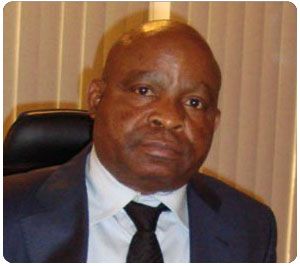 MR. Segun LabiyiManaging DirectorArksego Nigeria Ltd MR. Segun LabiyiManaging DirectorArksego Nigeria Ltd | 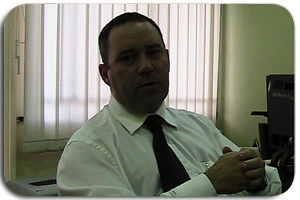 Karim BelkaidMD/CEODelattre Bezons Nigeria Ltd Karim BelkaidMD/CEODelattre Bezons Nigeria Ltd |
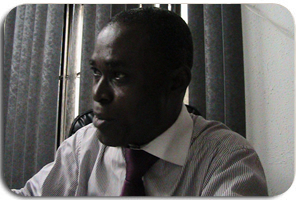 Clement S. UdohMD/CEOCledop West Africa Limited Clement S. UdohMD/CEOCledop West Africa Limited | 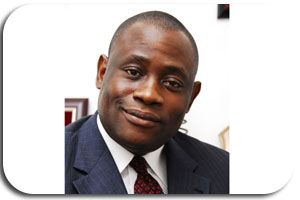 Dr. R.A. AjayiDirectorThe Bridge Clinic Dr. R.A. AjayiDirectorThe Bridge Clinic | 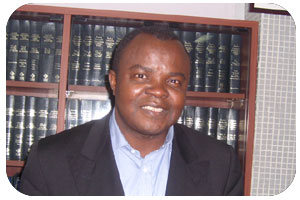 Dr.Ephraim Emeka UgwuonyeChairmanGoldcore Logistics Limited Dr.Ephraim Emeka UgwuonyeChairmanGoldcore Logistics Limited | 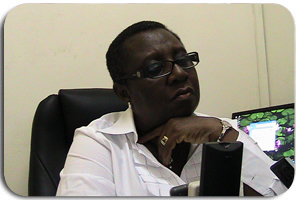 Mrs. A.Y. OkuboyejoExecutive DirectorGold Cross Hospital Mrs. A.Y. OkuboyejoExecutive DirectorGold Cross Hospital |
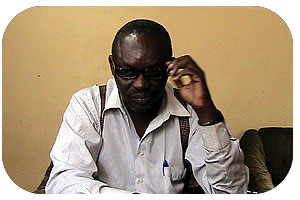 Mr. T.I. LawalMDACME Builders Mr. T.I. LawalMDACME Builders |  Dr. Segun OgundimuMd-CeoClearline International Limited Dr. Segun OgundimuMd-CeoClearline International Limited |  MR. Uzo NwaijeChairman-CeoFinlab Nigeria Limited MR. Uzo NwaijeChairman-CeoFinlab Nigeria Limited | 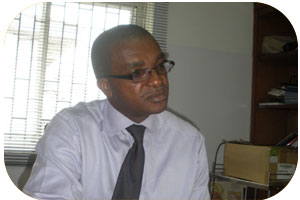 Dr. Adeyemi-BeroMDThe Roding Medical Centre Limited Dr. Adeyemi-BeroMDThe Roding Medical Centre Limited |
 FUT CONCEPTUS MANUFACTURING NIGERIA LTDManufacturing FUT CONCEPTUS MANUFACTURING NIGERIA LTDManufacturing |  Fbs Engineering LimitedConstruction and Civil Engineering Fbs Engineering LimitedConstruction and Civil Engineering |  Carlisle Properties & InvestmentsEstate Surveyors & Valuers Carlisle Properties & InvestmentsEstate Surveyors & Valuers |  Contemporary GroupConstruction Contemporary GroupConstruction |
 ALUBOND NIGERIA LIMITEDConstruction ALUBOND NIGERIA LIMITEDConstruction |  ASA CEILINGS LIMITEDConstruction ASA CEILINGS LIMITEDConstruction |  IMONIYAME HOLDINGS LIMITEDManufacturing IMONIYAME HOLDINGS LIMITEDManufacturing |  AKIN ABRAHAM ENGINEERING SERVICES LTDEngineering AKIN ABRAHAM ENGINEERING SERVICES LTDEngineering |
 Applied Engineering Technology Initiative LtdEngineering Applied Engineering Technology Initiative LtdEngineering |  PINCONSULT ASSOCIATES LIMITEDConstruction and Civil Engineering PINCONSULT ASSOCIATES LIMITEDConstruction and Civil Engineering |  ACME BUILDERS LIMITEDConstruction and Infrastructure ACME BUILDERS LIMITEDConstruction and Infrastructure |  ELEPHANT GROUPTrade & Industry ELEPHANT GROUPTrade & Industry |
 IRS Airlines Limitedaviation IRS Airlines Limitedaviation |  Denis Hotel AbujaTourism Denis Hotel AbujaTourism |  Vickmitchy Travels and Tours LimitedTourism Vickmitchy Travels and Tours LimitedTourism |  B-Jay\'s HotelTourism B-Jay\'s HotelTourism |